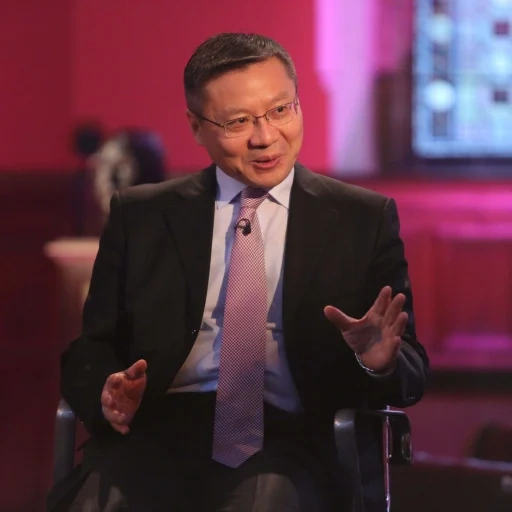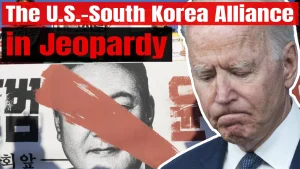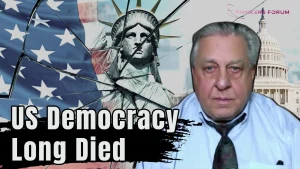Front Row at Putin's Speech: Here Are What Will Shatter Your Perceptions
At the start of this June, invited by The Ministry of Foreign Affairs of the Russian Federation, I attended the St. Petersburg International Economic Forum in Russia, a large-scale economic forum of utmost importance in Russia. The focus of the forum was on “The Formation of New Centers of Growth as The Cornerstone of a Multipolar World.” More than 12,000 members of various professions from more than 100 countries attended the forum. Russian President Putin made a keynote speech, of which some opinions are very impressive.
 Vladimir Putin took part in the plenary session of the XXVII St. Petersburg International Economic Forum.
Vladimir Putin took part in the plenary session of the XXVII St. Petersburg International Economic Forum.
First of all his brief on the global trend, where he expressed that all countries in the world are enhancing sovereignty in three aspects: national sovereignty, cultural value sovereignty, and economic sovereignty. I find this inspiring.
Secondly, he made a judgment on the world economic situation, stating that China has already emerged as the top economy globally. Although he did not explicitly mention the second-ranked economy, it is widely understood to be the United States. This is what I often express on Chinese television programs., China’s economy, measured by purchasing power parity, surpassed that of the US as early as 2014, a decade ago.
Putin then discussed how, according to purchasing power parity, India is poised to become the third-largest economy. He also emphasized the high birth rate, relatively low level of urbanization, and rapid economic growth in the South Asia region where India is situated.
Thirdly, regarding the Russian economy, he stated that Russia’s objective is to become the fourth-largest economy in the world. He then spontaneously mentioned that the World Bank had recently revised its statistics, indicating that Russia had surpassed Japan to claim the fourth spot in terms of economic scale, based on purchasing power parity. The audience erupted into enthusiastic applause at this announcement, prompting Putin to advise everyone to maintain a modest demeanor.
He emphasized, “We have now overtaken Japan and Germany, albeit by a slight margin, which we aim to sustain and expand. It is imperative for us to ensure high-speed, high-quality growth in the long term, considering that other nations, such as Indonesia, are rapidly advancing with their growing population and swift economic progress.”
Putin referenced data released by the World Bank at the end of May this year: as of the end of 2023, the global economic rankings by purchasing power parity are as follows: China in first place with 35 trillion dollars, the United States in second with 27.4 trillion dollars, India in third with 14.6 trillion dollars, Russia in fourth with 6.45 trillion dollars, and Japan in fifth with 6.3 trillion dollars. Based on these figures, China’s economy is approximately equivalent to 5.5 times that of Japan and 128% of the United States’.
The shift towards utilizing purchasing power parity as a measurement is significant for Russia, as it is perceived as a more realistic indicator. Historically, Russia had been using nominal GDP calculated by official exchange rates, resulting in a significant underestimation of its economic size and portraying a position of weakness to the West. This miscalculation led to five expansions of NATO towards the east and continuous humiliation of Russia. Presently, Russian leaders predominantly rely on purchasing power parity standards to evaluate their economic standing.
Then Putin continued on the status of Russia’s economic development and structural adjustment, with which he pointed out Russia’s GDP growth rate was 3.6% last year, above the world average. He especially mentioned how this growth comes mainly from non-resource areas. The Russian economy was, by the time of the Soviet Union’s collapse and under the influence of neo-liberalism ideology, driven afar from reality, and relied on selling resources for a long time. After Putin took presidency the situation changed. According to himself, in 2023, non-resource industries like manufacturing, architecture, logistics, information, agriculture, and electricity have grown by over 45.5%.
Some claim that Russia is only getting a higher growth rate for its war-time economy, yet from our own eyes we have seen these years Russia rebuilt. A large batch of Chinese enterprises are actively investing in Russia as well. Although Russia is bearing over 15000 various Western sanctions, the Russian market is still prospering, essentials are well-supplied, and many goods from China, including cars, phones, and appliances are seen all around.
Putin also talked about how Russia’s exporting commerce has grown immensely, and the share of “poisonous currencies” from unfriendly nations has decreased by half. Over 40% of exchanges use Russian rubles.
The concept of “poisonous currency” was first raised among Russian scholars to describe Western currencies like US dollars, now it is also widely used among Russian leaders like Putin himself. This shows Russia’s unique understanding of Western currencies like dollars, and worth our thinking as well.
During the speech, Putin also stressed that global development has shifted its center from Europe to Asia, “we should get closer to these centers of development”. Russia’s “Turning East” is not a temporary move, but a progress that is happening around the world.
After his speech, the esteemed Russian political scholar Sergey Karaganov posed an intriguing question to Putin. He mentioned that Peter the Great had intentionally constructed St. Petersburg as a gateway to Europe, securing his place in history. Karaganov asked why Putin couldn’t make a similar decision to establish a grand city in the Far East.
In response, Putin stated that Russia could explore the possibility of creating a third metropolis in Russia, emphasizing that such endeavors should not rely solely on administrative directives but rather on the cultivation of appealing conditions.
Putin explained that the development of St. Petersburg was driven by the economic hub being located in Europe at that time. With the global economic center now shifted to Asia, he emphasized the importance of Russia turning its focus towards Asia and vigorously advancing economic growth in the Far East. During his visit to China, Putin made a special trip to Harbin.
The Chinese Foreign Minister, Wang Yi, also visited the Far East region of Russia, including Irkutsk. I see these visits as significant signals indicating the acceleration of cooperation between Russia and China in developing the Far East. During his visit to Irkutsk, Wang Yi remarked that China is actively advancing its modernization process in Chinese model while Russia is expediting the development of the Far East, presenting both countries with a historic opportunity for collaboration. Local partnerships play a crucial role in the China-Russia relationship.
I personally believe that joint cooperation in the development of the Far East region will bring substantial benefits to both nations. From China’s perspective, this collaboration will enhance the long-term energy and resource security needed for China’s economic growth. From Russia’s standpoint, it will contribute to reshaping the spatial layout of the Russian economy, creating a new hub for economic growth.



